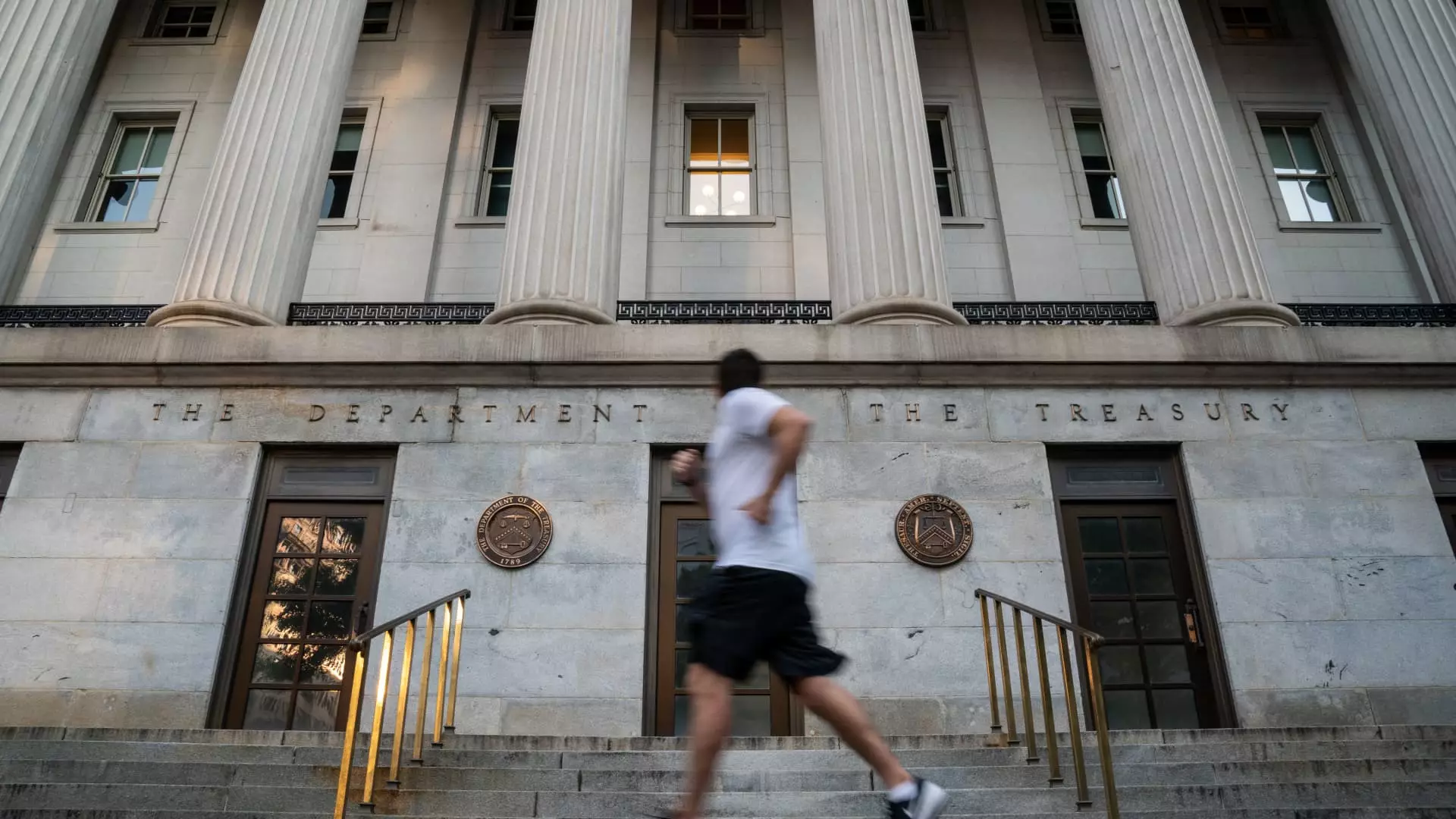In a disconcerting move, the U.S. Department of the Treasury has decided to dismantle the reporting requirements instituted under the Corporate Transparency Act (CTA), a legislative effort aimed at reducing illicit finance and criminal activities tied to opaque corporate structures. Originally, the CTA required millions of small businesses to disclose their “beneficial owners,” which aimed to illuminate the shadows where illegal activities often occur. However, an interim rule issued by the Financial Crimes Enforcement Network (FinCEN) has now exempted most U.S. businesses from this reporting obligation, ushering in what can only be described as a perilous retreat from accountability.
The CTA was introduced with laudable intentions: to thwart criminals from exploiting anonymous shell companies as a means to launder money and engage in fraud. Yet, this latest development contradicts that goal entirely. By limiting the scope of beneficial ownership reporting to a mere 20,000 entities—essentially a drop in the ocean compared to the original estimate of over 32 million—the government is not just missing the mark; it’s actively enabling the very behaviors it sought to mitigate.
Weakening the Framework
This rollback of crucial regulatory measures demonstrates not only a disregard for transparency and accountability but an alarming pivot towards a deregulatory ethos that prioritizes business comfort over public welfare. The decision, influenced by the Trump-era philosophy of minimizing government oversight, may provide a dangerous loophole for criminals. The phrase “plenty of shell companies are going to be exempt from reporting now” rings painfully true, and it raises serious questions about the implications for law enforcement and national security.
Notably, the interim rule, while purporting to balance the benefits of data collection with the burdens it imposes, seems to underplay the overwhelming necessity for transparency in corporations. This fine-tuned narrative minimizes the risks posed by illicit finance, adopting a laissez-faire attitude that is increasingly out of step with global norms. Other Western countries have embraced stringent reporting requirements, recognizing that financial secrecy can breed vast networks of corruption and criminality. By contrast, the U.S. appears to be regressing.
The Implications for Law Enforcement
Legal experts have expressed their concerns over the ramifications of this weakened policy. Erin Bryan, a partner and co-chair of a consumer financial services group, aptly noted that the potential for abuse is now significantly higher. The shift allows those engaged in financial misconduct to easily subvert reporting requirements, all while circumventing law enforcement scrutiny. With the continued exemptions for U.S. citizens and businesses in effect, it’s clear that the federal government’s approach has transformed from proactive oversight to a paradoxical retreat back into the shadows.
Scott Greytak from Transparency International echoes these sentiments, emphasizing that criminals can now more efficiently circumvent the safeguards intended to keep illicit activity at bay. This development not only weakens law enforcement’s capacity to operate effectively but also diminishes trust in American financial systems as transparent and responsible.
A Broader Consequence for Society
The decision to ease reporting burdens underscores a fundamental question: who does the government serve? The remarkable reduction of entities obligated to report their beneficial information directly affects victims of financial crimes, taxpayers, and the broader society, struggling to hold back the tide of corruption. The implications are profound: financial crimes thrive in murky waters, and this regulatory rollback not only darkens those waters but essentially grants an invitation to the very criminals the CTA was designed to combat.
We live in an era where financial accountability is paramount for the integrity of our institutions. Moving backward, as demonstrated by the latest FinCEN rule, risks undermining the fragile trust that the U.S. financial system holds in the eyes of its citizens and global partners. In a world increasingly aware of the need for accountability and transparency, this retreat from regulatory oversight can only be viewed as a grave misstep with serious consequences.
The future of financial integrity in America hangs precariously in the balance, a responsibility that should never be taken lightly. As citizens, advocates, and concerned stakeholders, we must remain vigilant and vocal about the need for robust regulations that keep the financial landscape transparent, secure, and accountable—not just for the sake of compliance, but for the common good.


Leave a Reply